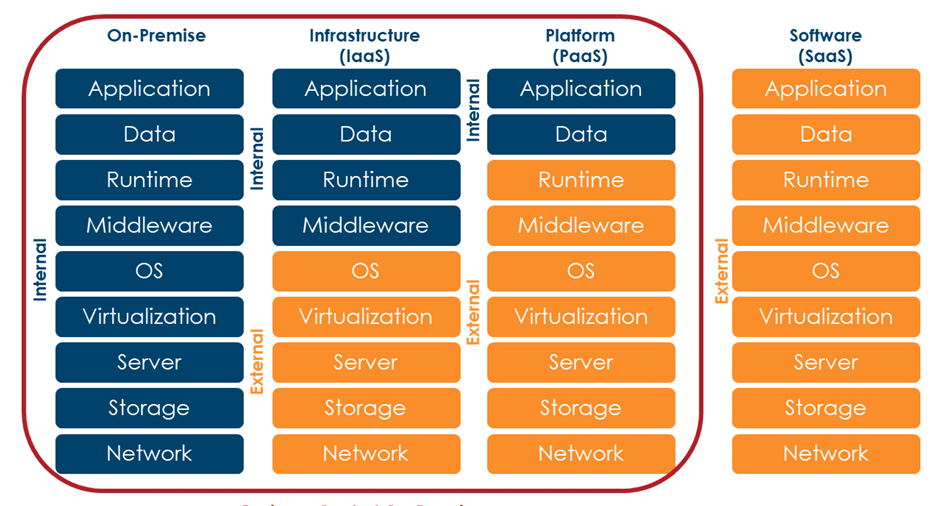
Dynamics CRM: SaaS vs. PaaS – Choosing the Right Model and Implementation Partner
- 3 months ego
- In Fintech
- 0 Comments
When deciding between Dynamics CRM as a Software as a Service (SaaS) or a Platform as a Service (PaaS), it’s important to consider the specific offerings from Microsoft, including Dynamics 365 Customer Engagement (CE), and how an expert partner can assist in implementation and ongoing support.
Dynamics CRM SaaS (Software as a Service)
Overview:
Microsoft offers Dynamics 365 SaaS as a suite of fully managed, ready-to-use
applications, including Dynamics 365 Customer Engagement (CE). These
applications are designed for businesses seeking quick deployment and standard
functionality across key operational areas like sales, marketing, and customer
service.
Available Options:
Microsoft Dynamics 365 SaaS includes:
- Dynamics
365 Customer Engagement (CE):
- A
collection of applications specifically focused on managing customer
relationships and experiences, which include:
- Dynamics
365 Sales: Streamline sales processes, manage pipelines, and build
relationships.
- Dynamics
365 Customer Service: Deliver exceptional service through case
management, omnichannel support, and self-service portals.
- Dynamics
365 Marketing: Engage customers through personalized marketing
campaigns, event management, and AI-driven insights.
- Dynamics
365 Field Service: Manage field operations, schedule resources, and
provide onsite support.
- Dynamics
365 Business Central:
- Combines
ERP and CRM capabilities for small to medium-sized businesses, handling
financials, operations, and customer interactions.
- Other
Dynamics 365 Applications:
- Project
Operations, Commerce, and more, addressing specific business
functions.
Key Features of SaaS Dynamics 365 CE:
- Ease
of Use: Pre-configured and ready for immediate deployment.
- Scalability:
Automatically scales to meet demand, with Microsoft handling
infrastructure.
- Management:
Microsoft oversees updates, security, and maintenance.
- Customization
Options: No-code/low-code tools like:
- Power
Automate: Automate workflows across Dynamics 365 CE apps.
- Power
Apps: Build simple apps to extend CE functionality.
- Power
BI: Create rich dashboards and analytics.
How FiNASAL Helps with Dynamics 365 CE SaaS:
- Seamless
Implementation:
FiNASAL ensures the smooth setup of CE apps tailored to your business processes. - Enhanced
Productivity:
Using tools like Power Automate and Power Apps, FiNASAL optimizes workflows and dashboards to improve operational efficiency. - Training
and Support:
FiNASAL provides comprehensive training for your team and ongoing managed services to keep your Dynamics 365 CE apps running at their best.
Dynamics CRM PaaS (Platform as a Service)
Overview:
For businesses with complex requirements, Microsoft offers a PaaS model through
Dynamics 365 Customer Engagement (CE) and the Power Platform.
This model allows businesses to build, extend, or customize their CRM solutions
beyond out-of-the-box capabilities.
Available Options:
- Dynamics
365 Customer Engagement (CE) in PaaS Mode:
- Access
the same core CE applications (Sales, Customer Service, Marketing, and
Field Service) but with extensive customization options using the Power
Platform and Azure services.
- Microsoft
Power Platform for Dynamics 365 CE:
- Power
Apps: Develop advanced custom applications tailored to unique
business requirements.
- Power
Automate: Create sophisticated workflows and automation.
- Power
Virtual Agents: Build AI-powered chatbots for customer interactions.
- Azure
Services for Dynamics 365 CE:
- Azure
Logic Apps: Enable seamless integrations with external systems.
- Azure
Functions: Develop custom code and workflows.
- Azure
Synapse and Data Lake: Perform large-scale analytics and store data
securely.
- Dataverse
(Formerly Common Data Service):
- Centralized
data storage that powers Dynamics 365 CE and supports custom data models
and integrations.
How FiNASAL Helps with Dynamics 365 CE PaaS:
- Custom
Development:
It builds tailored Dynamics 365 CE applications to address unique business challenges. - Advanced
Integrations:
It connects Dynamics 365 CE with third-party applications, legacy systems, or other enterprise platforms using Azure tools and APIs. - Enhanced
Data Insights:
Through Power BI and Azure Synapse, FiNASAL delivers actionable insights by creating custom dashboards and analytics solutions. - Ongoing
Support:
FiNASAL provides managed services to maintain and update your customizations, ensuring optimal performance.
Key Considerations for SaaS vs. PaaS with Dynamics 365 CE
- Ease
vs. Customization:
- SaaS:
Ideal for businesses prioritizing simplicity and rapid deployment with
minimal customizations.
- PaaS:
Best suited for companies requiring tailored functionality or integration
with other systems.
- Cost:
- SaaS:
Predictable subscription costs with minimal infrastructure management.
- PaaS:
Costs vary depending on development and resources consumed.
- Skill
Requirements:
- SaaS:
No advanced technical expertise needed.
- PaaS:
Requires skilled developers for building and maintaining customizations.
How FiNASAL can help you in making right decision?
FiNASAL conducts a thorough business assessment to recommend
the best-fit model—whether SaaS or PaaS. They provide a roadmap for
implementation, customizations, and long-term support to ensure the platform
aligns with your business objectives.
Implementing Dynamics 365 CE successfully requires expertise
and an understanding of your business needs. FiNASAL provides:
- Seamless
deployments for SaaS models, ensuring rapid time-to-value.
- Comprehensive
customizations and integrations for PaaS models.
- Managed
services for ongoing system optimization and support.
- Training
to empower your team to fully leverage Dynamics 365 CE.
Whether you need a streamlined SaaS solution or a highly
customized PaaS implementation, FiNASAL ensures your Dynamics 365 CE
platform delivers maximum business value.
Leave a comment
Subscribe to the best creative feed.
Don't worry, we don't spam


0 Comments